CERN drafts plans to idle accelerators due to Europe’s energy crunch
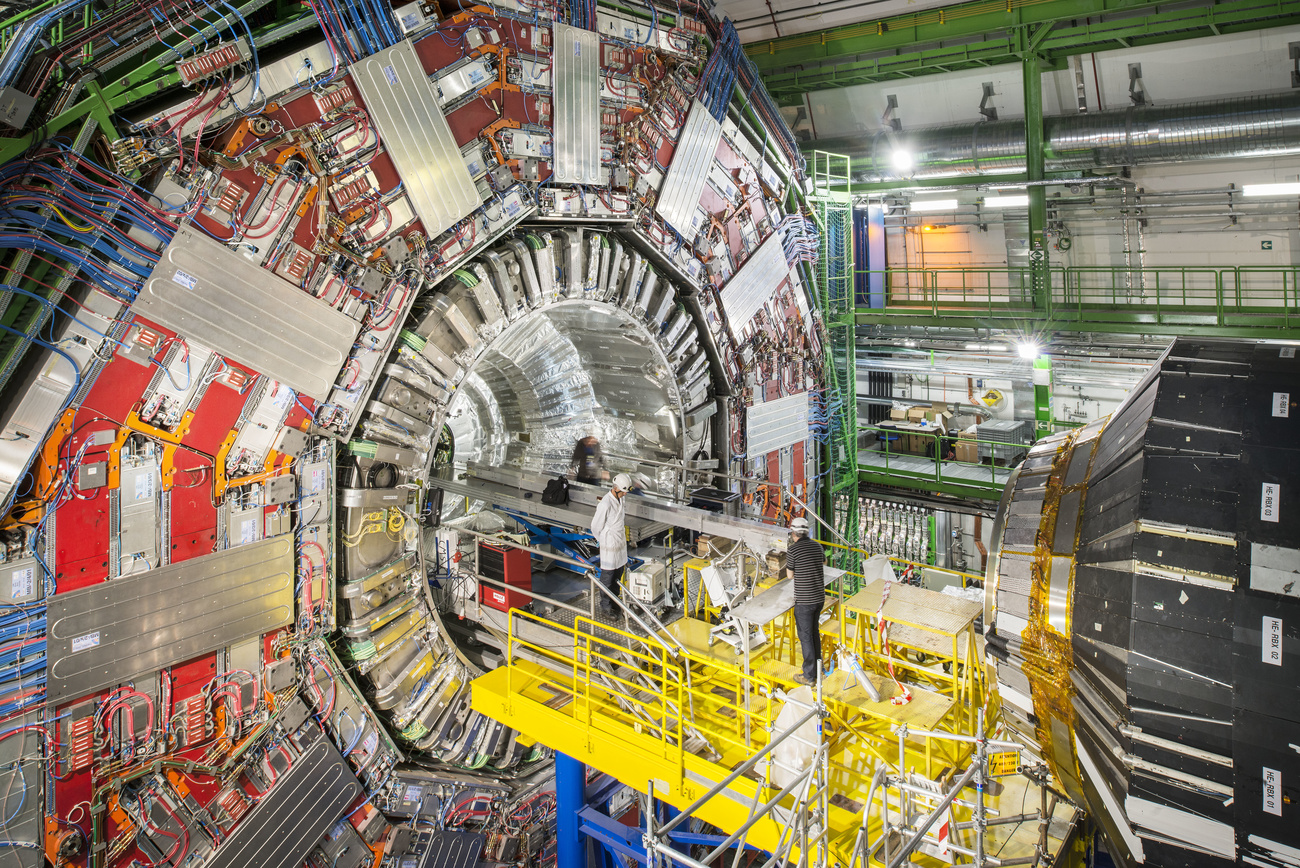
Europe’s energy crisis is threatening to slow fundamental particle physics experiments at the European Organization for Nuclear Research (CERN), located near Geneva, according to the Wall Street Journal (WSJ).
The newspaper reportedExternal link on Sunday that CERN officials were drafting a plan to pause experiments at CERN at periods of peak demand. The proposal will reportedly be presented at the end of September to governments that fund the organisation.
“Our concern is really grid stability, because we do all we can to prevent a blackout in our region,” Serge Claudet, chair of CERN’s energy management panel, toldExternal link the WSJ.
CERN, which straddles the French-Swiss border, is one of France’s largest electricity consumers. At peak operation, it consumes nearly 200 megawatts of power, a third as much as the nearby city of Geneva.
CERN aims to keep its biggest experimental apparatus – the Large Hadron Collider (LHC) – operating and to prevent a sudden shutdown that could disrupt the $4.4 billion machine, Claudet said. The LHC is one of eight accelerators in the complex; there are also two particle decelerators at CERN that allow scientists to study antimatter.
After three years of maintenance work, the LHC, the world’s biggest particle accelerator, started its third operational cycle in July working at higher energy levels. Scientists began firing proton beams at nearly the speed of light around its 27-kilometre loop as they resume their search for clues to the origins of the universe.
One-day warning
The WSJ said CERN was in talks with its electricity supplier, state-controlled French power giant EDF SA, to receive a day’s warning that it would need to consume less electricity. CERN would give priority to shutting down other accelerators besides the LHC, lowering its electricity consumption by up to 25%.
Europe’s energy picture remains clouded by the war in Ukraine. Moscow’s invasion of its neighbour have triggered sweeping sanctions from the West, led to a cut in energy supplies from Russia and stoked inflation.
On September 2, Russia indefinitely suspended natural gas flows through the Nord Stream 1 pipeline, tightening the squeeze on Europe’s energy supplies. The ongoing economic battle between Moscow and Brussels has raised the prospects of recession and energy rationing in some of the continent’s wealthiest countries.
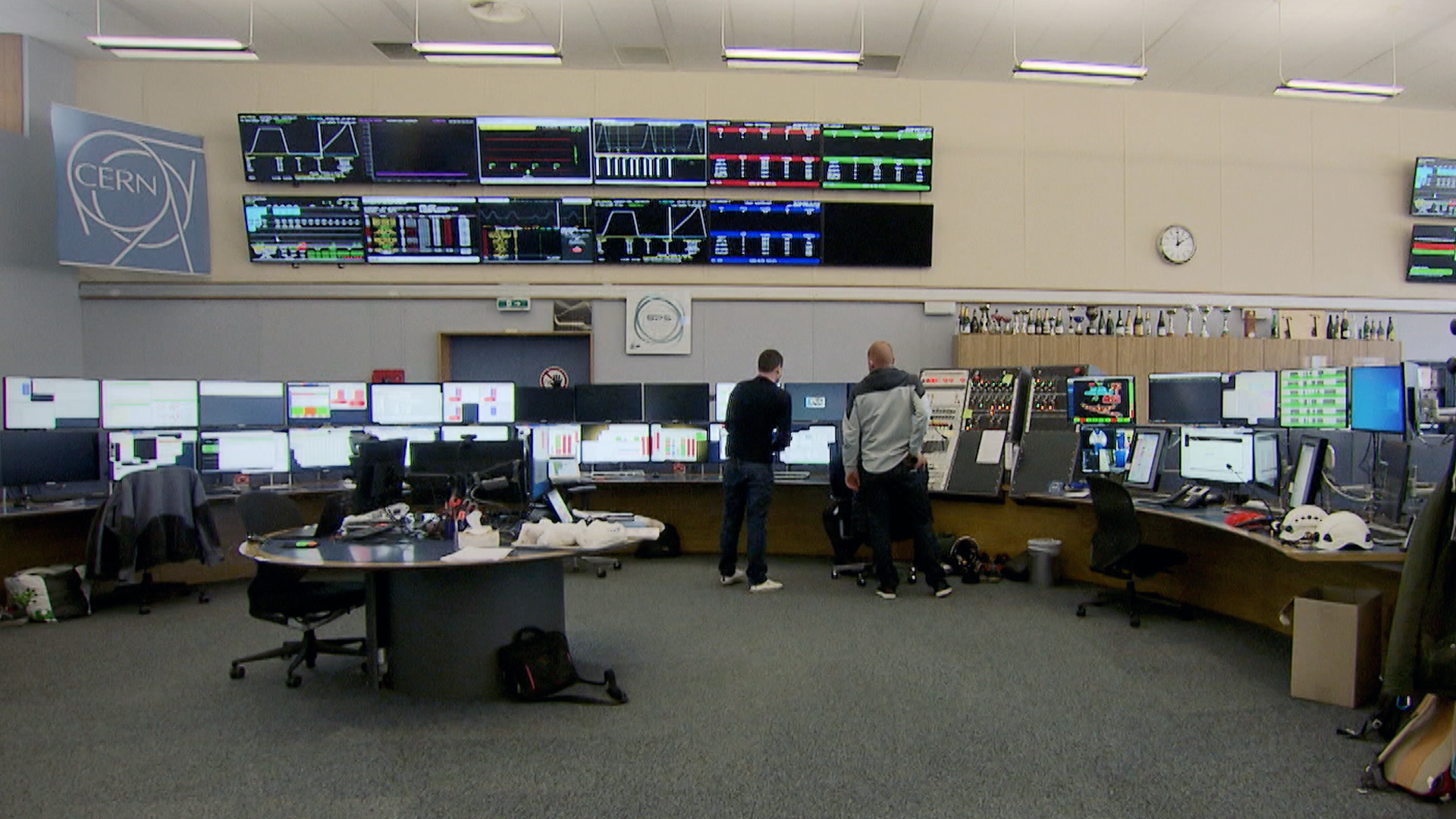
More
Smashing particles and popping champagne corks at CERN

In compliance with the JTI standards
More: SWI swissinfo.ch certified by the Journalism Trust Initiative
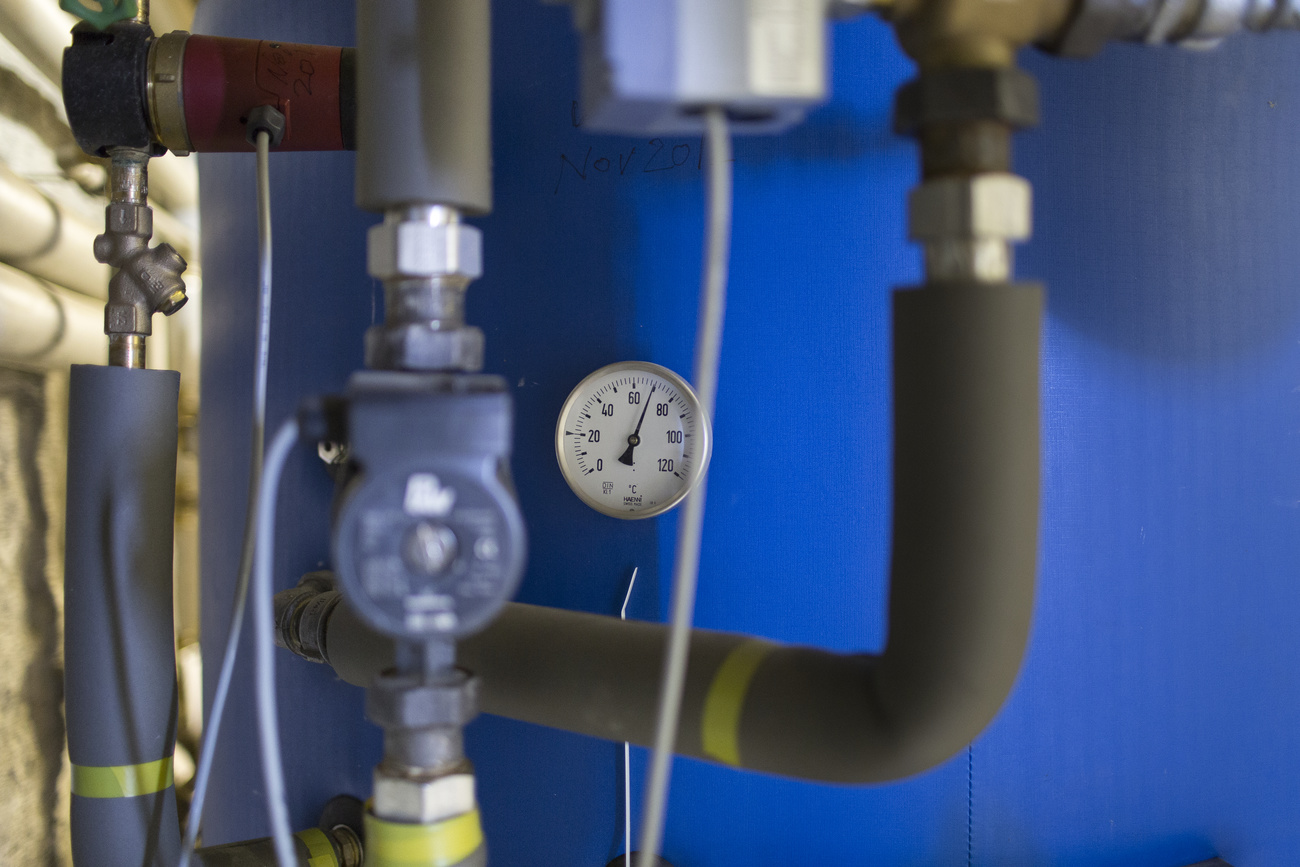
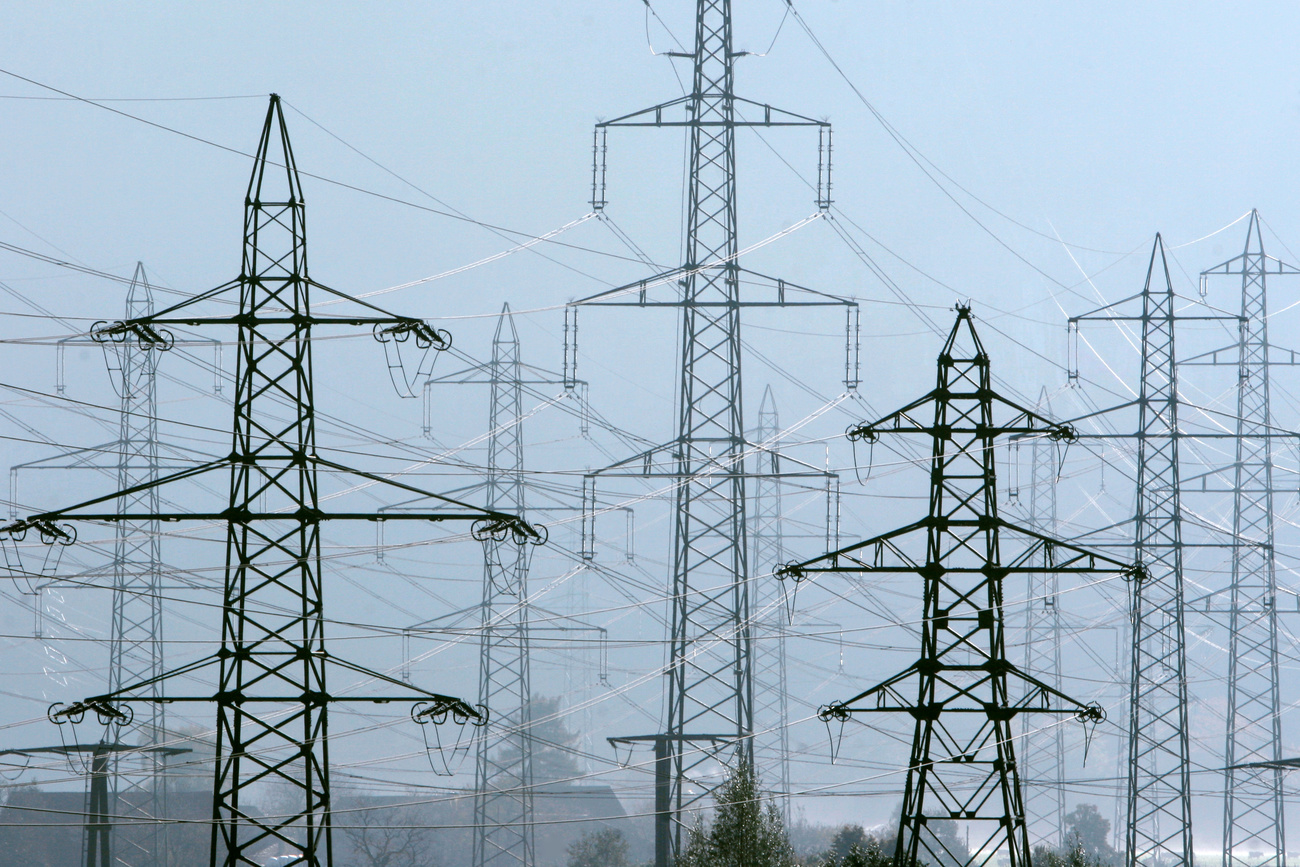
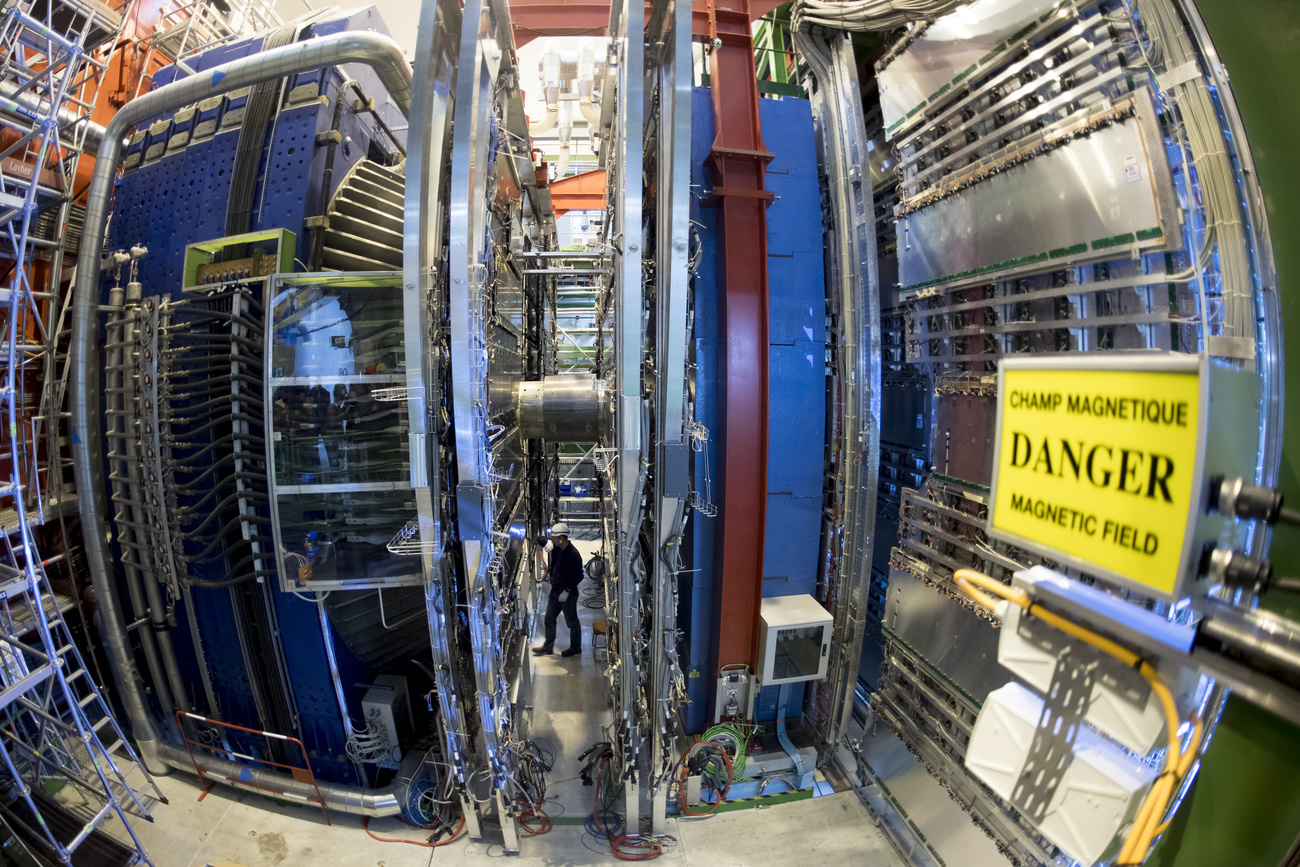
You can find an overview of ongoing debates with our journalists here. Please join us!
If you want to start a conversation about a topic raised in this article or want to report factual errors, email us at english@swissinfo.ch.